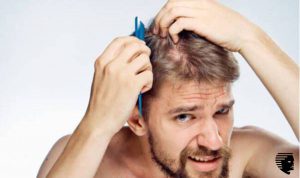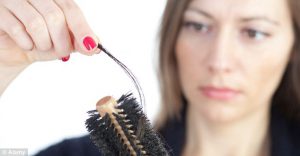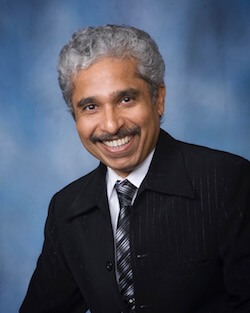Causes of Hair Loss
Has brushing your hair become your latest nightmare? Do you see strands of hair on your pillows too? Hair fall and significant hair loss can cause not just physical but emotional distress too. People who are suffering from hair loss try millions of different products like medicated shampoos and oils and even OTC health supplements without understanding the reason behind their hair loss. Dr Balvant Arora, Board Certified Plastic Surgeon with an expertise in Hair Restoration, believes that if we take the time to understand what causes hair loss and how is hair loss in men different from hair loss in women then we can find the right solution to prevent further damage to our hair.
At The Hair Loss Clinic, we have done our research on this topic and are happy to share it with you. We will explain what causes hair loss, more scientifically alopecia, and what differences can be analysed in hair loss in males and females.
At The Hair Loss Clinic, the classification system, called “Norwood Classification” for alopecia in men and for female pattern baldness “Ludwig Classification” is followed.
Common Causes For Hair Loss In Men And Women
Androgenetic alopecia (Hereditary hair loss)
The first common type of hair loss that can be noticed is androgenetic alopecia. Also referred to as hereditary alopecia, this type of alopecia can be inherited from both sides of the family and is often random when gender is concerned. Although this type of hair loss is common in both men and women, the pattern and conditions vary greatly.
Men
In the case of androgenetic alopecia in men, a certain hair loss pattern can be observed. It affects the front, the centre and the crown areas of the scalp in varying degrees. Thinning can also be noticed at the temple. Androgenetic alopecia can often result in partial or complete baldness. It is also often referred to as male pattern baldness.
Apart from the pattern, androgenetic alopecia in males is associated with several other medical conditions like heart issues, prostate enlargement, prostate cancer, diabetes, obesity, etc.
Women
In the case of androgenetic alopecia in women, no particular pattern of baldness or thinning can be observed. Generally, thinning of hair can be seen all over the scalp. Unlike male pattern baldness, you will not observe a receding hairline in women.
Androgenetic alopecia rarely leads to total baldness in the case of women.
Hair Loss Due To Hormonal Changes
Men
DHT plays a major role in hair loss in men. Dihydrotestosterone or DHT is a hormone which is more powerful than testosterone and often found in high quantities in men suffering from genetic baldness.
DHT also causes miniaturization of hair follicles which often results in the number of hair tufts decreasing and eventually dying which leads to an appearance of bald scalp.

Women
Hair loss in women is often associated with PCOS (Polycystic Ovary Syndrome) which often accompanies acne, weight gain, etc. Hormonal changes that take place during puberty, pregnancy or menopause can also result in hairloss.
In both cases, thyroid issues (hypothyroidism or hyperthyroidism) may also cause hair loss.

Medical Conditions
Medical conditions that cause hair loss are quite common in both males and females. Some of the common medical conditions that cause hair loss are as follows:
- Alopecia areata: This is a medical condition observed in both men and women where bald patches are observed. These patches may be single, multiple or even all over the body. It is an autoimmune condition.
- Scalp infection: Fungal or bacterial infection on the scalp can cause hair loss. Recurring infections also may cause scarring which hinders hair growth.
- Medications: Certain medicines used for the treatment of cancers, high blood pressure, heart problems, depression and arthritis can cause hair loss. Some oral contraceptive pills also cause hair loss.
- Trichotillomania: This is a psychological issue where a person pulls out his/her hair which may inhibit the hair follicles from growing thus resulting in baldness.
- Radiation Treatment to the scalp can cause hair loss which may not be reversible.
- Telogen Effluvium: It is temporary hair loss or thinning of scalp hair after a major illness or a major operation. It can also occur after massive weight loss or emotional stress.
Hairstyling
Hairstyling also plays a major role in speeding up the hair loss process. Tight braids, ponytails, cornrows, etc are some of the styles responsible for hair loss; also, using too many heating appliances like hair straighteners and curlers result in hair loss.
Hair loss is a common and treatable issue. Dr Balvant Arora, Board Certified Plastic Surgeon with an expertise in Hair Restoration, at The Hair Loss Clinic, focuses on analysing the reason behind hair loss and then has a holistic approach towards all hair Restoration treatments.
He believes that proper nutrition and supplements along with the treatment are necessary to achieve the best results. In case you have a hair loss issue, you are invited for a consultation at The Hair Loss Clinic where Dr Balvant Arora will guide you further on the subject.


Hair loss may be a common issue that many people of different ethnicities face, but the factors that contribute to the baldness/alopecia can be different

Until a few decades ago, we were taught to accept hair loss and balding as a natural irreversible state. Even now you may come across

It is a common misconception that the only solution for hair loss involves surgery! A lot of people are afraid of approaching a Trichologist because

